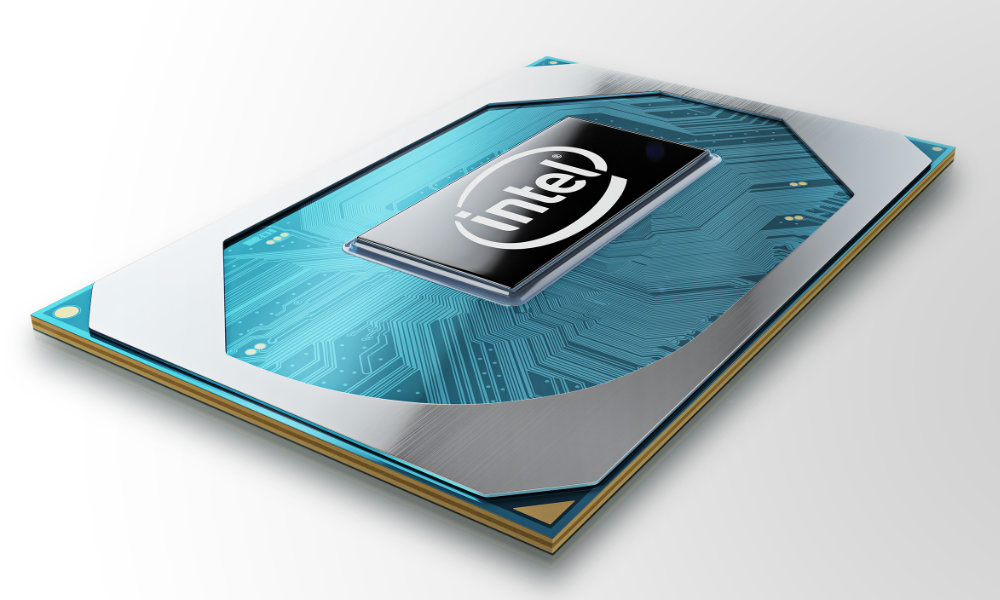Apple’s Next iMac Could Include This ‘Gaming-Class’ 10-Core CPU
 Credit: Intel
Credit: Intel
Toggle Dark Mode
While Apple’s MacBooks have been on roll lately and last we also saw the advent of the insanely powerful Mac Pro, Apple’s desktop iMacs have had fewer big updates recently, with only a modest refresh after almost two years of silence for the standard iMac models, and the late 2017 iMac Pro actually now being overdue — assuming of course Apple intends to update that one at all.
That said, Apple has at least been trying to keep its iMac models up to reasonably current specs, with an update last year that introduced 9th-gen eight-core Intel “Coffee Lake” CPUs to the family for the first time, along with Radeon Pro graphics, so if Apple plans to continue that trend, it stands to reason that we can expect the next bump to be to Intel’s next-generation “Comet Lake” processors.
In fact, Intel announced the new lineup this week, with a collection of 32 new processors, at least some of which are clearly suited to Apple’s iMacs.
Notably, at the very top of the line is the flagship Core i9-10900K, which Intel calls “the world’s fastest gaming processor,” and although you might not think of Apple using a “gaming” processor, the new chip is a direct successor to the i9-9900K, the bleeding-edge chip that Apple put in last year’s highest-end iMac configurations.
What’s more significant, however, is that this could actually spell the first time an iMac has gone beyond an eight-core CPU, as the new i9-10900K features 10 cores along with a base clock speed of 3.7GHz, plus turbo-boosting single-core speeds of up to 5.3GHz, thanks to Intel’s Thermal Velocity Boost technology. Last year’s chips broke the 5.0GHz barrier for the first time, and it looks like the new Comet Lake chips are now poised to blow well past that mark.
Of course, as is the case with the current i9-9900K chip, this new ultra-fast 10-core CPU would only be found in the highest-end custom configuration, while lower-end models would likely include other less powerful 10th-gen chips, possibly still going down to the Intel Core i5-10500 on the 27-inch iMac, and possibly down to a Core i3 on the 21.5-inch model.
Mind you, that’s only if Apple is going to continue selling the iMac in those configurations. Recent rumours are pointing to a pretty big refresh for the iMac lineup, which hasn’t seen a significant redesign in over five years. However, other reports have suggested that these bigger changes may not come until at least 2021, with the 2020 iMac lineup simply getting the same sort of minor spec bumps as last year.
Whither iMac Pro?
What remains the bigger question is whether Apple is going to do anything with the almost three year old iMac Pro, which launched in late 2017 to much fanfare, and actually still holds it own against the entry-level 2019 Mac Pro in most performance benchmarks — and at a substantially lower price too; although it lacks the aftermarket upgradeability of its more expensive cousin, it’s still a pretty good deal if you know that you’ll never need to take it beyond the base specs.
Some have suggested that the iMac Pro may have been a one-off product from Apple to attempt to fill the gap between the 2013 Mac Pro, which had a somewhat lukewarm reception, and the new Mac Pro that was released last year. Certainly, the iMac Pro, which could be maxed out with an 18-Core Intel Xeon W CPU and AMD Vega 64 Graphics, was a workstation-class desktop in every way designed to meet the needs of serious professionals, but pound-for-pound even the 2017 model is a contender against the Mac Pro on the lower end, especially when you factor in that you’re already getting a pretty great screen in the package too.
However, if the iMac Pro does live on, it’s a safe assumption that it will continue to feature the same higher-end Xeon CPUs, keeping it in an entirely different class. However, with the power that’s now being put into the standard iMac lineup, it adds more fuel to the debate around whether there’s a place for the iMac Pro to continue existing in Apple’s lineup.
[The information provided in this article has NOT been confirmed by Apple and may be speculation. Provided details may not be factual. Take all rumors, tech or otherwise, with a grain of salt.]






